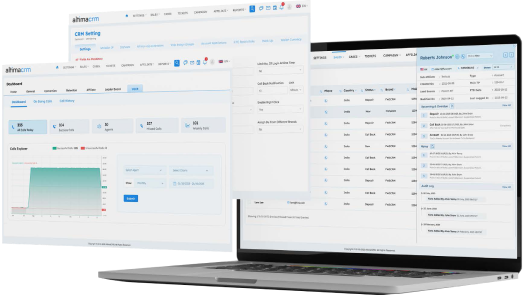Looking ahead to 2024 forex brokers find themselves at a critical juncture, faced with the decision of whether to upgrade their CRM platforms. Despite a number of headwinds likely to face the retail industry, technology investments are always at a premium. This includes upgrading to the best quality CRMs available.
CRM platforms have long been essential tools for forex brokers, helping them keep track of client information, manage leads, and streamline communication. However, as the retail landscape continues to evolve and adapt to changes, relying on outdated CRM systems can put a broker at a significant disadvantage.
Best Reasons to Upgrade Your CRM
One of the primary reasons why forex brokers should consider upgrading their CRM platforms is the need for enhanced security. In an age where cyber threats are becoming increasingly sophisticated, safeguarding client data is a top priority.
Modern CRM systems offer robust security features, including encryption and multi-factor authentication, that can protect sensitive information from falling into the wrong hands. By upgrading to a more secure CRM platform, brokers can build trust with their clients and ensure the safety of their data.
Furthermore, the forex market is highly competitive, and brokers are continually seeking ways to gain an edge. An upgraded CRM platform can provide valuable insights through advanced analytics and reporting features. These tools can help brokers identify trends, track client behaviour, and make data-driven decisions to improve their services. In a market where accurate and timely information can make all the difference, having access to comprehensive data is a game-changer.
Another compelling reason to upgrade a CRM platform is to enhance client engagement. Today’s traders expect a seamless and personalized experience from their brokers. Modern CRM systems are equipped with automation and artificial intelligence capabilities that can streamline communication and offer tailored recommendations to clients. By leveraging these features, brokers can provide a higher level of service, increasing client satisfaction and loyalty.
Moreover, regulatory compliance is an ever-present concern in the financial industry. Forex brokers must adhere to strict regulations to ensure the integrity of the market and protect clients from fraudulent activities. Upgraded CRM platforms often come with built-in compliance features that can help brokers meet regulatory requirements more efficiently. This reduces the risk of non-compliance, which can lead to hefty fines and damage to a broker’s reputation.
In addition to security, analytics, and compliance, upgrading a CRM platform can significantly improve operational efficiency. Time is of the essence in forex trading, and brokers cannot afford to waste it on manual data entry or cumbersome processes. Modern CRM systems offer automation features that can streamline routine tasks, such as lead management, document handling, and reporting. This frees up valuable time and resources that brokers can allocate to more strategic activities, such as client acquisition and retention.
An upgraded CRM platform can facilitate better communication and collaboration within a brokerage firm. In a global market where teams may be spread across different time zones, having a central hub for information and communication is invaluable. Modern CRM systems offer real-time updates and collaboration tools that enable teams to work seamlessly together, improving overall efficiency and coordination.
Eye on 2024 and Beyond
As we look ahead to 2024, forex brokers should also consider the scalability of their CRM platforms. The forex market is known for its volatility and rapid growth. Brokers who anticipate expansion in their client base need a CRM system that can scale to accommodate the increased workload. Upgrading to a robust CRM platform ensures that a broker’s technology infrastructure can support future growth without disruptions.
In addition to scalability, integration capabilities are crucial for a CRM platform in the forex industry. Brokers often use a variety of software tools, including trading platforms, analytics software, and risk management systems. An upgraded CRM platform should seamlessly integrate with these tools, providing a unified and efficient workflow. This integration not only saves time but also reduces the risk of errors associated with manual data entry.
It’s worth noting that customer expectations in the forex industry are amid a paradigm shift. Traders and investors are becoming more discerning and tech-savvy, demanding a higher level of service and convenience. An outdated CRM platform may not be equipped to meet these evolving expectations, potentially leading to client attrition.
Moreover, as the forex market continues to globalize, brokers are serving clients from diverse backgrounds and regions. Multilingual support and customization options are essential for catering to this global clientele. Upgraded CRM platforms often offer language support and customizable features that can help brokers tailor their services to meet the unique needs of clients from different regions.
Conclusion
The decision to upgrade a CRM platform is not merely a matter of convenience but a strategic move that can have a significant impact on a forex broker’s success. Enhanced security, advanced analytics, regulatory compliance, improved operational efficiency, and better client engagement are compelling reasons to invest in a modern CRM system. As the forex market evolves, staying competitive and meeting the evolving expectations of clients require a robust and adaptable CRM platform. Therefore, forex brokers should seriously consider upgrading their CRM systems in the coming year to position themselves for success in this dynamic and demanding industry.
